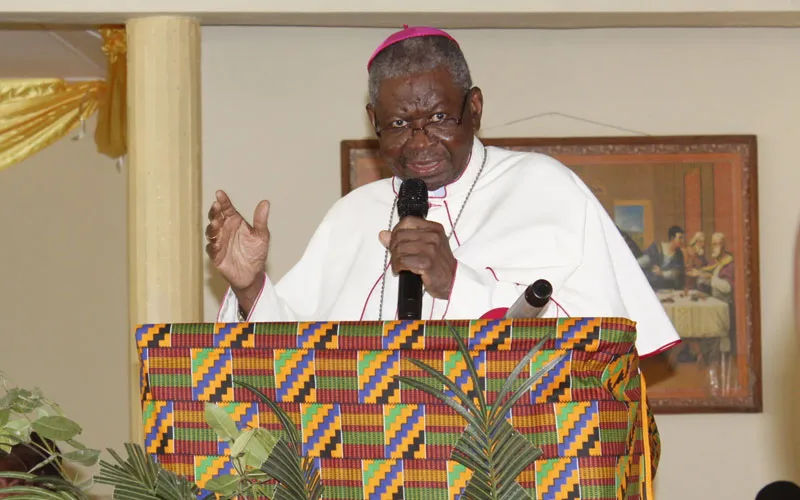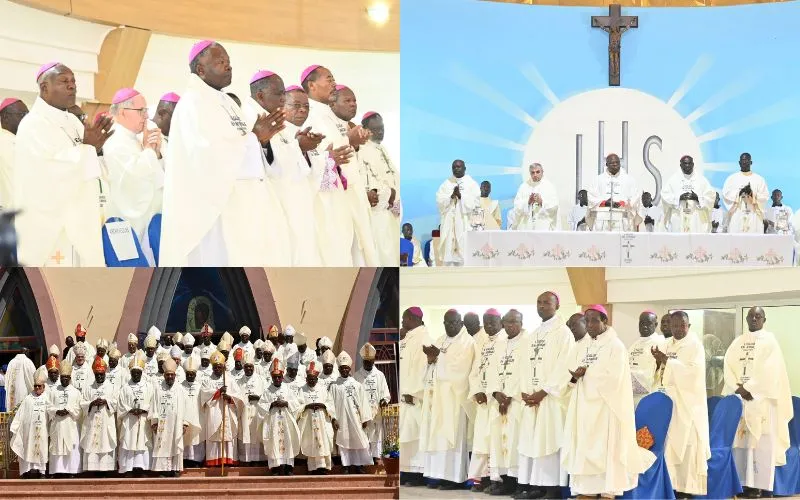“This situation of Ghana presents a complex challenge, a roadblock to the evangelizing mission of the Church,” Archbishop Naameh said during the opening of the Plenary Assembly that was convened at St. Francis Xavier Cathedral Hall in Donkorkrom Vicariate.
The Archbishop who started his Episcopal Ministry in May 1995 as Bishop of Ghana’s Damongo Diocese continued, “We are confronted in the news with the uncontrollable appetite for wealth by Christians, particularly the youth who will go any length to ensure that they make money.”
There is also an expanding gap between the rich and the poor in the country, he told GCBC members, representatives of the Clergy, women and men Religious, and the Laity who gathered for the opening ceremony of the Plenary Assembly, adding that there are high levels of immorality and indiscipline among the youth in the country.
The Ghanaian Archbishop said that the reported cases of examination leakages in junior and senior high schools, tertiary institutions and law schools are a demonstration that the virtue of honesty is being overlooked especially by the younger generation.
“Today, the principle of ‘the end justifies the means’ has taken a grip on some Ghanaians who think it does not matter how one gets what he or she wants. This is buttressed by the ritual killings of innocent people in Wa in the Upper West Region, Mankessim and Kasoa in the Central Region and other parts of the country,” he said.
In his opening remarks at the Assembly that started November 6 and is expected to end on November 13, the GCBC President went on to highlight the issue of illegal mining activities, which have serious effects on the environment and the quality of life of Ghanaians as an issue of concern.
“Many galamsey operators in Ghana are known to use mercury for gold recovery, an environmentally damaging practice which has been largely phased out in many countries of the world,” Archbishop Naameh said and explained that when exposed to the human body, mercury can lead to neurological challenges for unborn children.
In water bodies, he said that mercury changes from metallic to organic form and can stay in rivers for years and find their way into, fishes which eventually reach the people through the human food chain he further said.
He went on to say that the destruction of the soil system during mining will deprive several generations of Ghanaians their “God-given right to till the land and make a living from it by way of agriculture.”
“When stones or pebbles are brought to the soil surface as a result of galamsey activities, a fairly permanent destruction occurs to the soil system, because it takes between 500-1000 years before the mined-out stones are weathered to form top soils to support vegetation. This is an excellent example of how reckless exploitation of our mineral resources can deprive future generations of the ability to feed themselves,” he said.








